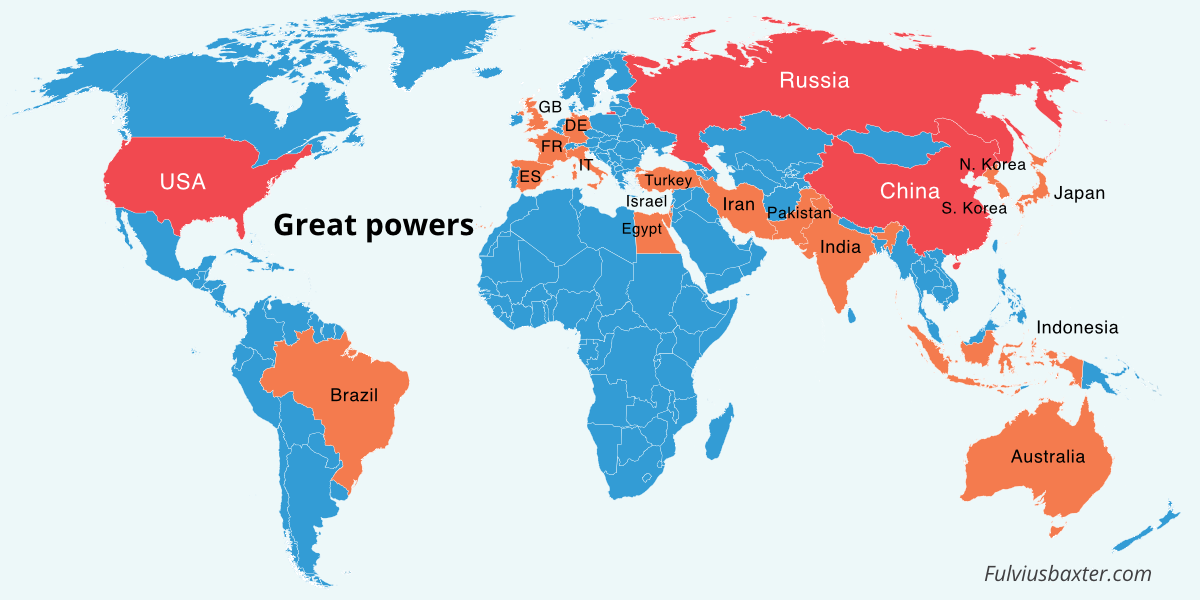 When strife flares up in the Middle East, the conservatives usually sides with Israel while the left rallies around Palestine. That is the order of things, and it is rare for anyone to think outside the box.
When strife flares up in the Middle East, the conservatives usually sides with Israel while the left rallies around Palestine. That is the order of things, and it is rare for anyone to think outside the box.
But even conservatives should contemplate the Palestinians’ right to a country. Regardless of whether you want to call them Palestinians or Arabs. The Palestinians were an ancient historical people, and they do not exist today, but the Arabs in the area have revived the name. Much like the people of North Macedonia, they are not really Macedonians but Slavs, Albanians etc, but have appropriated the historical term.
It doesn’t matter what we call them, but the Arabs of the region should have a right to the fields of their fathers, in some form. Many peoples formed their own countries after the fall of the Ottoman Empire in the 18th and 19th centuries, such as Greeks, Bulgarians, Romanians, Syrians, Jordanians, etc.
Even Jews and Armenians eventually built nations. The Kurds were probably the only people who did not succeed in creating their own state. The Arabs, on the other hand, created several different countries, and one would expect that the Arabs living in and around Israel would be able to move to neighbouring Arab countries.
Unfortunately, displacement and ethnic resettlement were part of the nation-building process after the fall of the Ottoman Empire. But since Israel was created after 1945, ethnic cleansing was no longer fashionable. We were building a new and better world, where everyone was equal and free. The international order was based on the United States and the newly formed United Nations.
So, Israel was a half-baked construction; the Jews got their country, but it was too small and infiltrated by Arab territories. Of course, it could have been divided up, fair and square, but to be honest, neither the Jews nor the Arabs seem very keen on that solution.
A factor against the Jewish nation is that it was not built by Jews from the Middle East (who are more entitled to the land) but by European Jews who moved there. At least it was European Jews who took the initiative, nowadays the country is made up of Jews from many different areas.
It could be argued that Jews have always lived in the region, and the reason why they have sometimes been few in number is because they have been displaced by other ruling peoples. And now it is they themselves who are doing the expelling. In addition, one can also question the right of an ethnic group to a land through ancient tradition, but then we get the same problem with many other peoples that have made themselves free and created their own countries.
The pragmatist can claim the might is right; if the Israelis can keep and develop their land, they have the right to do so. Well, say the hesitant, they get help from the US. It is not a natural and organic order if great powers interfere. After all, the great powers interfered even when Greece started its war of independence against the Ottomans, and many other times. Perhaps neither Austria-Hungary nor the Ottoman Empire would have disintegrated into smaller countries if other powers had not intervened? Intervention is probably part of the normal order of things, and it is done for personal gain. In the case of the United States, the gain is the weakening and disintegration of Arab countries, which provides advantages in the oil-rich geopolitical landscape.
More and more people are also coming to the conclusion that this is not my conflict, and that they are not interested in it. Taking sides is pointless, it only creates conflict and division between ourselves. Maybe it doesn’t matter who wins, we have enough of our own problems?








